10 TeethWhitening Foods You Need to Include in Your Diet

A bright and healthy smile is a universally desired trait, which can boost one’s confidence and self-esteem. However, teeth discoloration is a common problem that can be caused by various reasons, including genetics, smoking, poor oral hygiene, and certain foods and drinks. Fortunately, there are some teeth whitening foods that can help to combat this problem naturally. Including these foods in your diet can not only enhance your dental health but also provide numerous other benefits to your overall well-being. From fruits and vegetables to dairy products, there are several options that you can incorporate into your daily meals easily. So, let’s take a look at the top ten teeth whitening foods that can give you a brighter, healthier smile in no time.
Having white teeth not only enhances your physical appearance but also signifies good oral hygiene. It’s a common belief that people with brighter smiles are perceived as more attractive, confident, and approachable. Additionally, white teeth can boost your self-esteem, making you feel more comfortable in social situations. Maintaining a healthy diet that includes teeth-whitening foods can help eliminate stubborn stains caused by food and drinks, tobacco, and aging. Thus, incorporating these foods into your daily diet can be a simple yet effective way to achieve a brighter, healthier smile.
Certain foods contain natural teeth-whitening agents that can help brighten and whiten your teeth. For instance, crunchy fruits and vegetables like apples, carrots, and celery act as natural abrasives that can scrub away surface stains on your teeth. Similarly, strawberries, which are rich in malic acid, can help remove surface discoloration and whiten your teeth. Other foods like cheese, yogurt, and milk are rich in calcium, which helps strengthen your tooth enamel and prevent staining. Additionally, green tea contains catechins, which are natural antioxidants that can help prevent plaque buildup and improve the overall health of your teeth and gums. By incorporating these teeth-whitening foods into your diet, you can achieve a brighter, healthier smile naturally.
Strawberries

Strawberries are a delicious and healthy fruit that can help whiten your teeth naturally. They contain malic acid, which is a natural teeth whitening agent that helps remove stains from the surface of your teeth. Malic acid is also found in many teeth whitening products because of its powerful whitening properties. Eating strawberries regularly can help you maintain a bright and healthy smile without the need for expensive treatments. In addition to their teeth whitening benefits, strawberries are also a great source of vitamin C, fiber, and antioxidants. Vitamin C is essential for maintaining healthy gums and teeth, while fiber helps to control blood sugar levels and improve digestion. Antioxidants help to protect your body from free radical damage, which can cause a variety of health problems. By including strawberries in your diet, you can enjoy a wide range of health benefits while also keeping your teeth looking bright and beautiful.
Strawberries are not only a delicious fruit, but they also contain malic acid, which has been found to aid in teeth whitening. Malic acid is a natural compound that can be found in many fruits and vegetables, including strawberries. This acid helps to break down stains on the teeth and can also remove surface discoloration. Additionally, the vitamin C in strawberries is beneficial for oral health and can help prevent gum disease. While consuming strawberries alone may not result in dramatically whiter teeth, incorporating them into a balanced diet alongside other teeth-whitening foods can help improve the overall appearance of your smile.
Strawberries are not only delicious, but they are also a great addition to any teeth-whitening diet. One idea is to simply include them as a snack, either on their own or paired with some yogurt or granola. They can also be added to smoothies or used as a topping for oatmeal or pancakes. For a more savory option, try slicing them up and adding them to a spinach salad with some feta cheese and balsamic vinaigrette. Another creative idea is to make a strawberry salsa to serve with grilled chicken or fish. With so many options, it’s easy to incorporate strawberries into your daily meals and reap the benefits for your teeth.
Pineapple
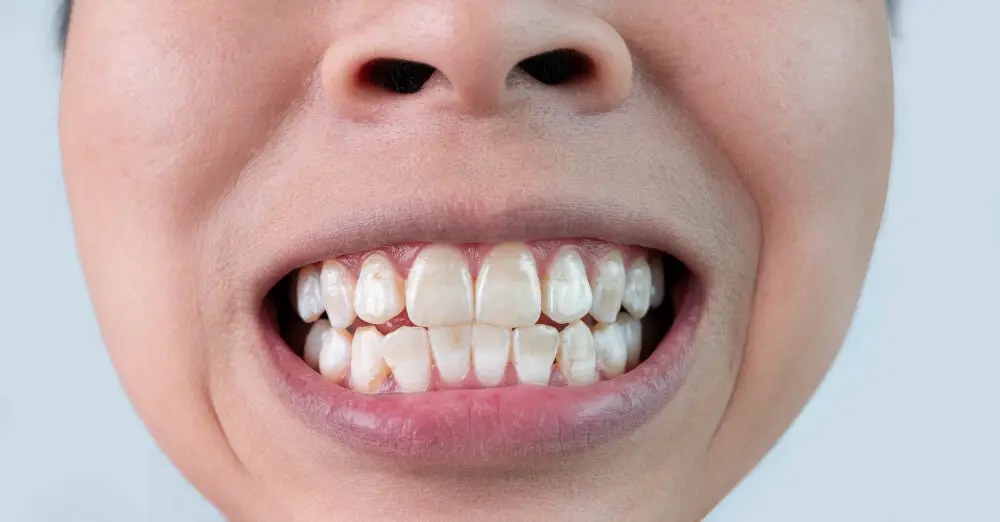
Pineapple is a delicious tropical fruit that not only tastes great but also has several health benefits. It contains an enzyme called bromelain, which acts as a natural stain remover and helps to whiten teeth. Bromelain also helps to break down plaque and reduce inflammation in the mouth, making it a great food for promoting oral hygiene. Additionally, pineapples are high in vitamin C, which is essential for healthy gums and teeth. Apart from its teeth-whitening benefits, pineapple is also a great source of other nutrients. It is rich in fiber, which helps to improve digestion and regulate bowel movements. It also contains antioxidants, which protect the body against free radicals and reduce the risk of chronic diseases. Pineapple is also low in calories, making it a great snack option for those who are trying to lose weight or maintain a healthy weight. Overall, incorporating pineapple into your diet can provide a range of health benefits, including improved oral health and a brighter smile.
Pineapple is a sweet and tangy tropical fruit that is rich in bromelain, a natural enzyme that helps to break down proteins. Bromelain is particularly effective in removing stains from teeth because it breaks down the protein that binds the stain to the tooth’s surface. This enzyme also helps to remove plaque and bacteria that can cause tooth decay and gum disease. Eating pineapple regularly can help to keep your teeth healthy and bright, while also improving your overall oral health. So, if you want to maintain a bright and healthy smile, make sure to include pineapple in your diet.
Pineapple is not only a delicious tropical fruit but also a great teeth-whitening food. To incorporate pineapple into your diet, you can start by adding it to your smoothies, salads, or desserts. Pineapple can be grilled and eaten as a side dish with your main course, or you can even use it as a topping for your pizza. Another way to enjoy pineapple is by making a refreshing juice or cocktail. Pineapple also pairs well with seafood, making it a perfect addition to your seafood dishes. So, go ahead and add this versatile fruit to your diet to not only enhance the taste of your meals but also achieve a brighter smile.
Cheese

Cheese is a delicious and nutritious food that can also help to whiten your teeth. Cheese is rich in calcium, which is essential for strong and healthy teeth, as well as casein, a protein that can help to reduce the risk of tooth decay. Additionally, cheese is low in sugar, which means it won’t contribute to the development of cavities. Eating cheese regularly can also help to stimulate the production of saliva, which can help to neutralize acids in the mouth and wash away food particles that can cause staining. There are many different types of cheese to choose from, so you’re sure to find one that you enjoy. Hard cheeses like cheddar and parmesan are great options for snacking or adding to salads, while softer cheeses like brie and goat cheese are perfect for spreading on crackers or bread. You can also try incorporating cheese into your meals by using it as a topping for pizza or adding it to omelets and frittatas. Whatever your preference, adding cheese to your diet is a tasty and beneficial way to whiten your teeth and promote overall oral health.
Cheese is not only a delicious and versatile food item, but it is also an excellent source of calcium that can help promote healthy teeth. Calcium is essential for maintaining strong bones and teeth, and cheese contains a high amount of this mineral. Additionally, cheese can help remove stains from the surface of the teeth due to its low pH level, which helps to neutralize acidic bacteria. The calcium and other minerals found in cheese can also help to strengthen tooth enamel, making them less susceptible to decay and damage. Therefore, including cheese in your diet is a great way to improve your dental health and keep your teeth looking bright and white.
Cheese lovers rejoice! Incorporating cheese into your diet not only adds a delicious burst of flavor to your meals, but it can also provide a variety of health benefits. Cheese is a great source of calcium, protein, and vitamin D, which can help strengthen bones, boost muscle growth, and promote overall health. Adding cheese to salads, sandwiches, and omelets can help elevate the taste and provide a healthy dose of nutrients. Additionally, swapping out processed cheese for natural, aged varieties like cheddar, Gouda, and Parmesan can help reduce the risk of tooth decay and promote teeth whitening. So go ahead and indulge in some cheesy goodness to keep your teeth and body healthy!
Carrots
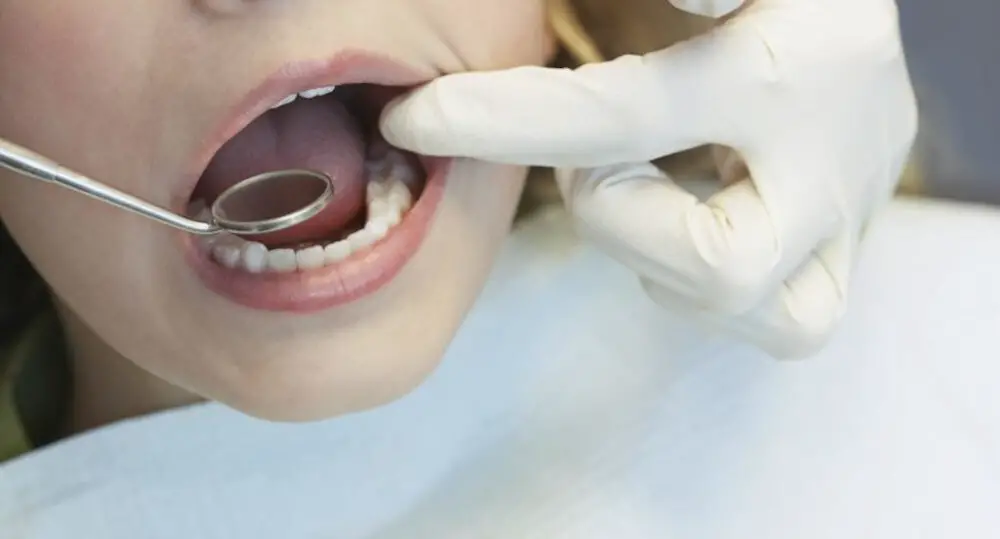
Carrots are not only good for your overall health, but they also have a positive impact on your teeth. The crunchy texture of carrots helps to stimulate saliva production, which in turn helps to wash away bacteria and food particles that may be stuck to your teeth. Additionally, the vitamin A found in carrots helps to strengthen tooth enamel, which can help to prevent tooth decay and cavities. Carrots are also a great source of fiber, which is important for maintaining good oral hygiene. With their sweet and satisfying taste, carrots are an excellent addition to any diet. It is recommended to eat raw carrots as they are the best form for teeth whitening. Chewing on carrots helps to scrape away plaque and tartar buildup, which can make your teeth appear dull and discolored. In addition, the vitamin C found in carrots helps to fight off bacteria and reduce inflammation in the gums, which can lead to healthier teeth and gums. By incorporating carrots into your diet, you can enjoy a brighter and healthier smile while also reaping the many health benefits that this nutritious vegetable has to offer.
Carrots are not only a delicious, crunchy snack, but they are also great for promoting good dental health. Chewing on carrots can help remove plaque and stains from teeth due to the vegetable’s high fiber content. The act of chewing stimulates the production of saliva, which helps neutralize acids and wash away food particles that can cause tooth decay. Additionally, the rough texture of carrots acts as a natural abrasive, gently scrubbing away surface stains from the teeth. Incorporating carrots into your diet is an easy and effective way to maintain a healthy, bright smile.
Carrots are not only a nutritious and delicious vegetable but also an excellent source of vitamin A, which plays a vital role in maintaining healthy teeth and gums. There are numerous ways to incorporate carrots into your diet, such as adding them to salads, soups, stews, or stir-fries. You can also enjoy them as a tasty snack by slicing them into sticks and dipping them into hummus or guacamole. Another idea is to juice carrots with other fruits and vegetables for a refreshing and nutrient-packed drink. Additionally, you can roast or grill carrots with some olive oil, garlic, and herbs for a flavorful side dish that complements any meal. With these ideas, you can easily incorporate carrots into your diet and enjoy their teeth-whitening benefits.
Baking Soda

Baking soda, also known as sodium bicarbonate, is a versatile ingredient that can be found in most households. It has a slightly abrasive texture that can help remove surface stains from teeth and promote a brighter smile. Baking soda works by neutralizing the acids in the mouth, which can lead to tooth decay and discoloration. Additionally, it helps to kill harmful bacteria that can cause bad breath and other oral health issues. To use baking soda for teeth whitening, simply mix a small amount with water to create a paste and brush your teeth with it a few times a week. While baking soda can be an effective teeth whitening agent, it’s important to use it in moderation. Overuse can lead to damage to the enamel, which can make teeth more vulnerable to decay and sensitivity. Additionally, baking soda should not be used as a substitute for regular brushing and flossing, which are essential for maintaining good oral health. When used in combination with other teeth-whitening foods, such as strawberries and pineapple, baking soda can be a powerful tool for achieving a brighter smile.
Baking soda has been used for centuries as a natural teeth whitener due to its mild abrasive properties. When mixed with water, baking soda forms a paste that can scrub away surface stains on teeth. Additionally, baking soda is alkaline, which can help neutralize acids in the mouth that contribute to tooth discoloration. However, it’s important to note that baking soda should be used in moderation, as excessive use can damage tooth enamel. It’s also not a substitute for regular brushing and flossing, but rather a complementary addition to a good oral hygiene routine.
Baking soda, which is also known as sodium bicarbonate, is an excellent natural teeth whitener that can be easily incorporated into your oral hygiene routine. You can mix it with water to create a paste and use it as a toothpaste, or add it to your regular toothpaste to enhance its whitening properties. Alternatively, you can use it as a mouthwash by adding a teaspoon of baking soda to a glass of water and swishing it around your mouth for a couple of minutes. Baking soda is alkaline, which helps to neutralize the acids in your mouth that can cause tooth decay and discoloration. It also has mild abrasive properties that can help to remove surface stains on your teeth, leaving them looking whiter and brighter.
Apples

Apples are not only a delicious fruit, but they are also great for your teeth. They contain a natural acid that helps to break down food particles and stimulate saliva production, which helps to neutralize harmful bacteria in your mouth. Additionally, the crunchy texture of apples can help to scrub away surface stains on your teeth, making them look brighter and whiter. So, if you want to keep your teeth healthy and white, make sure to include apples in your diet. Furthermore, apples are also packed with nutrients that are beneficial for your overall health. They are a rich source of fiber and vitamin C, which can help to boost your immune system and improve your digestion. They also contain antioxidants that can help to protect your cells from damage caused by harmful free radicals. So, not only are apples great for your teeth, but they are also a nutritious snack that can help to keep you healthy and feeling your best.
Apples are a great addition to your diet if you’re looking to whiten your teeth naturally. When you bite into an apple, the fibrous texture of the fruit helps to scrub away surface stains on your teeth. Additionally, apples contain malic acid, a natural bleaching agent that can help to remove discoloration from your teeth. The act of chewing also stimulates saliva production, which helps to neutralize harmful bacteria and wash away food particles that can contribute to staining. Incorporating apples into your daily diet can not only improve your overall health but also give you a brighter, more radiant smile.
Apples are a versatile fruit that can be easily incorporated into your diet in many ways. One simple way is to eat them as a snack, either on their own or paired with almond butter or cheese for a more filling option. Apples can also be sliced and added to salads for a sweet and crunchy twist. For breakfast, try topping your oatmeal or yogurt with diced apples and a sprinkle of cinnamon. For a savory option, add sliced apples to your grilled cheese sandwich or use them as a topping for your pizza. With their natural sweetness and high fiber content, apples are a great addition to any diet for their health benefits and can also help keep your teeth white and bright.
Celery

Celery is a crunchy and refreshing vegetable that is packed with numerous health benefits. Not only is it low in calories, but it also has a high water content which makes it an excellent food for promoting good oral hygiene. Celery is also rich in antioxidants, vitamins, and minerals that can help protect your teeth and gums from the harmful effects of bacteria and plaque buildup. Additionally, the fibrous nature of celery can help to naturally scrub your teeth and remove debris that may be stuck between them. Furthermore, celery has been shown to help prevent tooth decay and gum disease. Its high water content stimulates saliva production, which can help neutralize the acids produced by bacteria in your mouth. This can help prevent the formation of cavities and reduce the risk of gum disease. Additionally, celery contains anti-inflammatory compounds that can help reduce swelling and inflammation in the gums, which can help prevent and treat gum disease. Overall, incorporating celery into your diet can be an excellent way to improve your oral health and promote a bright, healthy smile.
Celery is a great teeth-whitening food that can help remove debris from teeth and stimulate saliva production. The fibrous texture of celery acts as a natural dental floss that helps to clean between teeth and remove food particles that can cause staining and decay. As you chew on celery, it triggers the salivary glands to produce more saliva. Saliva helps to neutralize harmful acids and bacteria in the mouth, which can cause tooth decay and discoloration. Additionally, the high water content in celery helps to wash away any debris or bacteria that may be lingering on the surface of your teeth. So, adding celery to your diet is an easy and effective way to improve your oral health and keep your teeth looking bright and healthy.
Celery is a versatile and crunchy vegetable that can easily be incorporated into your diet in a variety of ways. You can add chopped celery to salads, soups, and stir-fry dishes for a refreshing crunch. Alternatively, you can dip celery sticks into hummus, peanut butter, or guacamole for a healthy snack. Another idea is to juice celery along with other fruits and vegetables for a nutrient-packed drink. Celery is also a great addition to smoothies, adding a subtle flavor and lots of fiber. Whatever your preference, adding celery to your diet is an easy way to increase your intake of vitamins, minerals, and antioxidants while promoting good dental health.
Broccoli
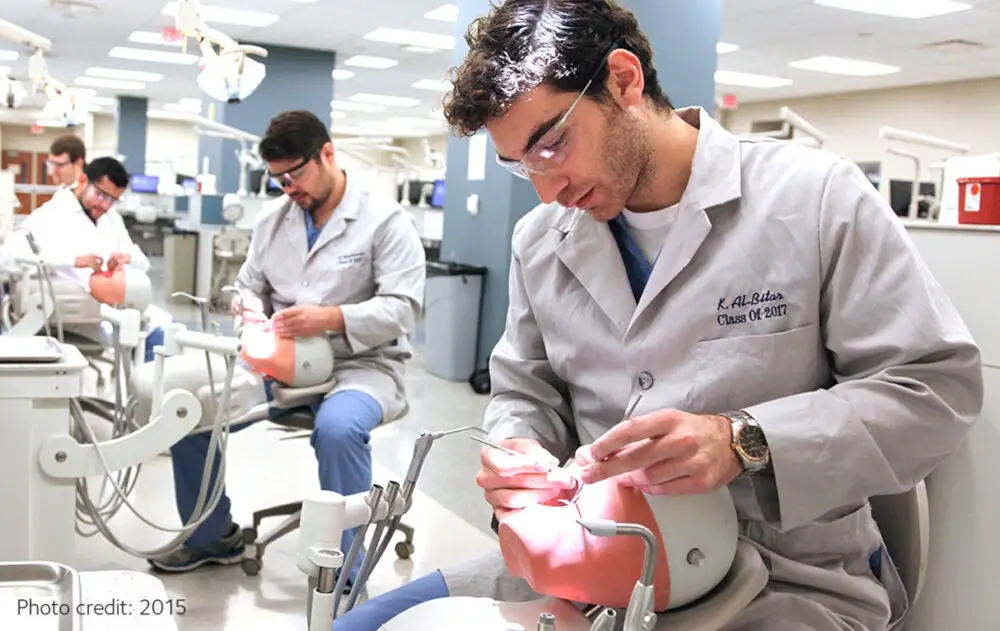
Broccoli is a cruciferous vegetable that is packed with numerous health benefits. Not only is it a great source of fiber, but it is also rich in vitamins and minerals such as vitamin C, vitamin K, and potassium. Additionally, broccoli contains compounds that have been shown to have anti-inflammatory properties, making it a great food for promoting overall health and wellbeing. One of the lesser-known benefits of broccoli is that it can actually help whiten your teeth. The high fiber content in broccoli can help scrub away surface stains on your teeth, while the vitamin C it contains can help to strengthen your tooth enamel. Furthermore, the antioxidants present in broccoli can help to protect your teeth from damage caused by harmful bacteria, reducing the risk of cavities and gum disease. So if you’re looking to brighten your smile naturally, adding some broccoli to your diet is a great place to start.
Broccoli is a cruciferous vegetable that is rich in iron, a mineral that plays a vital role in maintaining healthy teeth. The iron in broccoli helps to protect tooth enamel from stains by strengthening it and preventing erosion caused by acidic foods and drinks. Additionally, broccoli is also high in fiber, which helps to scrub away surface stains on teeth while promoting digestion and a healthy gut. This superfood is also a great source of vitamin C, which supports healthy gums and can help to reduce inflammation and bleeding. By including broccoli in your diet, you can naturally whiten your teeth while also improving your overall oral health.
Broccoli is a versatile and nutritious vegetable that can easily be incorporated into your diet. One simple way to enjoy broccoli is to steam it as a side dish or add it to a stir-fry. You can also roast it in the oven with a sprinkle of olive oil, salt, and pepper for a delicious and healthy snack. Another tasty option is to blend broccoli into a smoothie with other fruits and veggies for a nutrient-packed breakfast or snack. Additionally, you can use broccoli as a topping for pizza or mix it into a pasta dish for added texture and flavor. With so many delicious and creative ways to enjoy broccoli, there’s no reason not to include this superfood in your diet.
Water
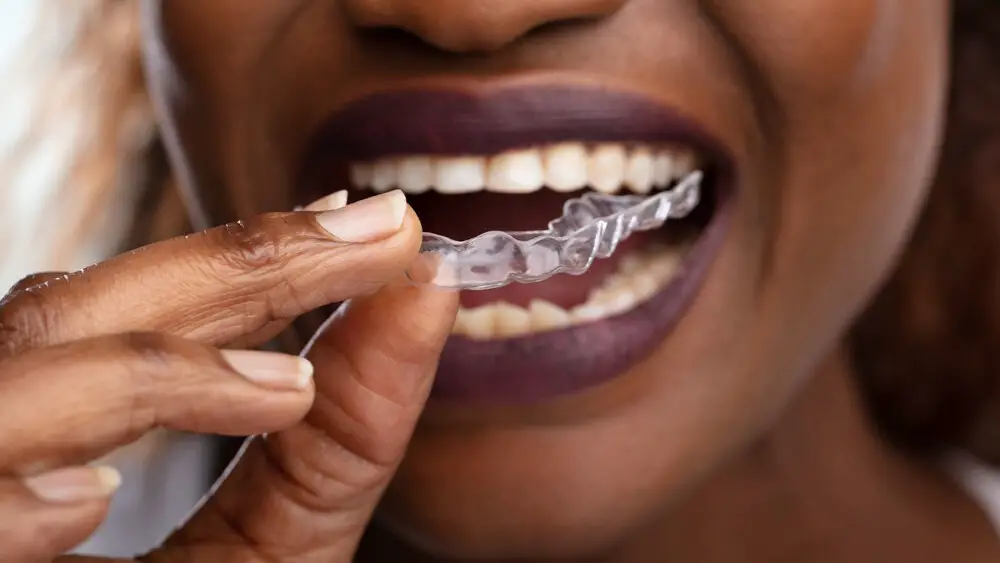
Water is an essential component of human life, and it plays a crucial role in maintaining our overall health. When it comes to teeth whitening, water is a vital ingredient that can help you achieve a brighter smile. Drinking water helps to wash away the food particles and bacteria that accumulate in your mouth, which can lead to staining and discoloration of teeth. It also helps to keep your mouth hydrated, which is important for maintaining healthy gums and teeth. Furthermore, water can neutralize the acid in your mouth, which can erode the enamel and cause tooth decay. Another benefit of water is that it helps to increase saliva production. Saliva is a natural defense mechanism that helps to protect your teeth from harmful bacteria and plaque buildup. Saliva contains enzymes that can break down food particles, and it also helps to neutralize the acid in your mouth. Additionally, saliva contains minerals such as calcium and phosphate, which can help to strengthen your enamel and prevent tooth decay. Therefore, drinking water regularly can help to keep your mouth healthy and prevent teeth discoloration.
Drinking water is essential for maintaining oral health as it helps to wash away food particles and prevent stains on teeth. When we eat, food particles are left in our mouth, and if they are not removed by brushing or rinsing, they can cause plaque buildup and lead to staining. Drinking water helps to rinse away these particles and prevent them from sticking to the teeth. Additionally, drinking water increases saliva production, which helps to neutralize acids in the mouth and prevent tooth decay. By drinking water regularly, we can ensure that our teeth stay clean and healthy, and prevent the buildup of stains and discoloration.
Aside from consuming teeth-whitening foods, incorporating more water into your daily routine is an effective way to maintain a bright smile. Drinking water not only helps to hydrate your body but also washes away food particles and harmful acids that can cause tooth decay. You can make it a habit to drink a glass of water before and after meals, or carry a water bottle with you throughout the day. You can also infuse water with fruits and herbs to add flavor and make it more enticing to drink. Additionally, consider swapping out sugary drinks with water as a healthier alternative. Aim to drink at least 8 glasses of water a day to keep your teeth and overall health in check.
Nuts and Seeds
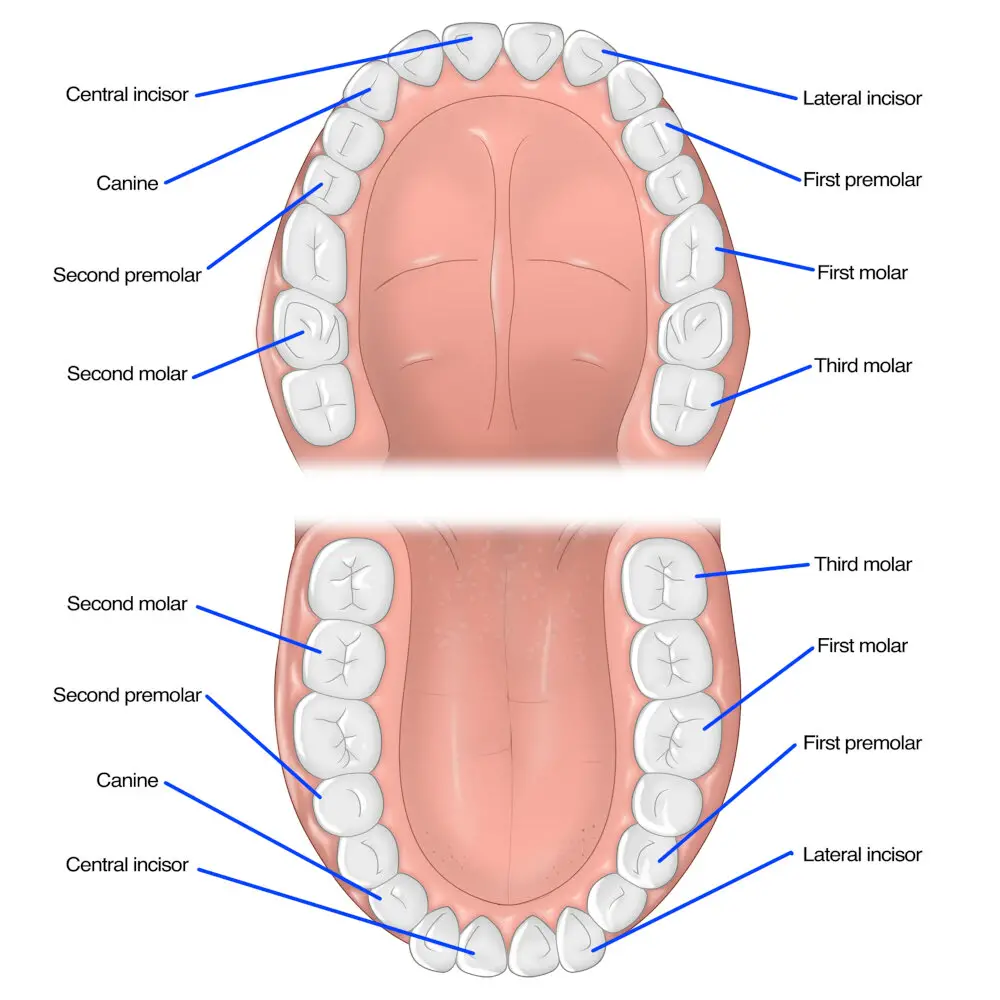
Nuts and seeds are excellent sources of essential nutrients that promote overall oral health. They are packed with fiber, vitamins, and minerals, such as calcium and phosphorus, which strengthen teeth enamel and prevent tooth decay. Additionally, nuts and seeds are rich in omega-3 fatty acids that reduce inflammation in the mouth and prevent gum disease. Almonds, for instance, are particularly beneficial for teeth whitening as they contain high amounts of calcium and magnesium, which help to whiten and strengthen teeth. Moreover, nuts and seeds are also excellent for saliva production. Saliva is essential for maintaining oral health as it helps to wash away food particles and bacteria that cause bad breath and tooth decay. Eating nuts and seeds stimulates salivary glands and increases saliva production, which helps to neutralize acids in the mouth and prevent the formation of plaque. Therefore, including a handful of nuts or seeds in your daily diet is a tasty and easy way to promote oral health and whiten your teeth naturally.
Nuts and seeds are not only a great source of healthy fats and minerals but also provide many oral health benefits. They contain calcium, magnesium, and phosphorus which are essential minerals to promote healthy teeth and gums. These minerals help to strengthen tooth enamel and prevent tooth decay. Moreover, the healthy fats present in nuts and seeds, such as omega-3 fatty acids, help to reduce inflammation in the mouth and prevent gum disease. Additionally, their abrasive texture can help scrub away surface stains on the teeth, leaving them looking brighter and whiter. Incorporating nuts and seeds into your diet can provide a delicious and nutritious way to promote oral health and maintain a sparkling smile.
Incorporating nuts and seeds into your diet is a great way to not only add some extra crunch and flavor to your meals, but also boost your overall health. Snacking on a handful of almonds, walnuts, or pumpkin seeds can help reduce inflammation in the body, lower cholesterol levels, and improve brain function. Additionally, adding seeds like chia, flax, or hemp to your morning smoothie or oatmeal can provide a good source of protein, fiber, and omega-3 fatty acids to keep you energized throughout the day. So, next time you’re looking for a nutritious and delicious snack, reach for some nuts and seeds and enjoy the many benefits they have to offer!
In the article titled \10 Teeth-Whitening Foods You Need to Include in Your Diet,\ we discussed a variety of foods that can help brighten your smile naturally. These included crunchy fruits and vegetables like apples and celery, which help scrub away surface stains as you chew. Other beneficial foods included dairy products like cheese and yogurt, which contain lactic acid to help break down stains, and leafy greens such as kale and spinach, which are high in minerals that can strengthen teeth and promote oral health. Additionally, foods like strawberries, oranges, and pineapples contain natural enzymes that can help whiten teeth when consumed regularly. By incorporating these teeth-whitening foods into your diet, you can enjoy a brighter, healthier smile without relying on harsh chemicals or abrasive treatments.
If you’re looking to brighten up your smile and achieve optimal oral health, then it’s time to start experimenting with incorporating teeth-whitening foods into your diet. These foods not only taste great but they’re also packed with essential nutrients that can help to strengthen your teeth and gums, prevent cavities, and combat bad breath. From crunchy fruits and vegetables like apples and carrots, to antioxidant-rich berries and dark leafy greens, there are countless delicious options to choose from. So why not make a commitment to try these teeth-whitening foods today and see the amazing benefits for yourself? Your smile (and your body) will thank you for it!
Conclusion

In conclusion, incorporating teeth-whitening foods into your daily diet can be a natural and effective way to enhance the appearance of your smile. By consuming foods such as strawberries, apples, carrots, and broccoli, you can not only maintain good oral health but also promote the natural whitening of your teeth. Additionally, consuming foods that are high in calcium and vitamin D can help to strengthen teeth and enamel, further enhancing the overall health and beauty of your smile. So, instead of relying solely on expensive teeth whitening treatments, try incorporating some of these foods into your daily routine for a brighter and healthier smile.







